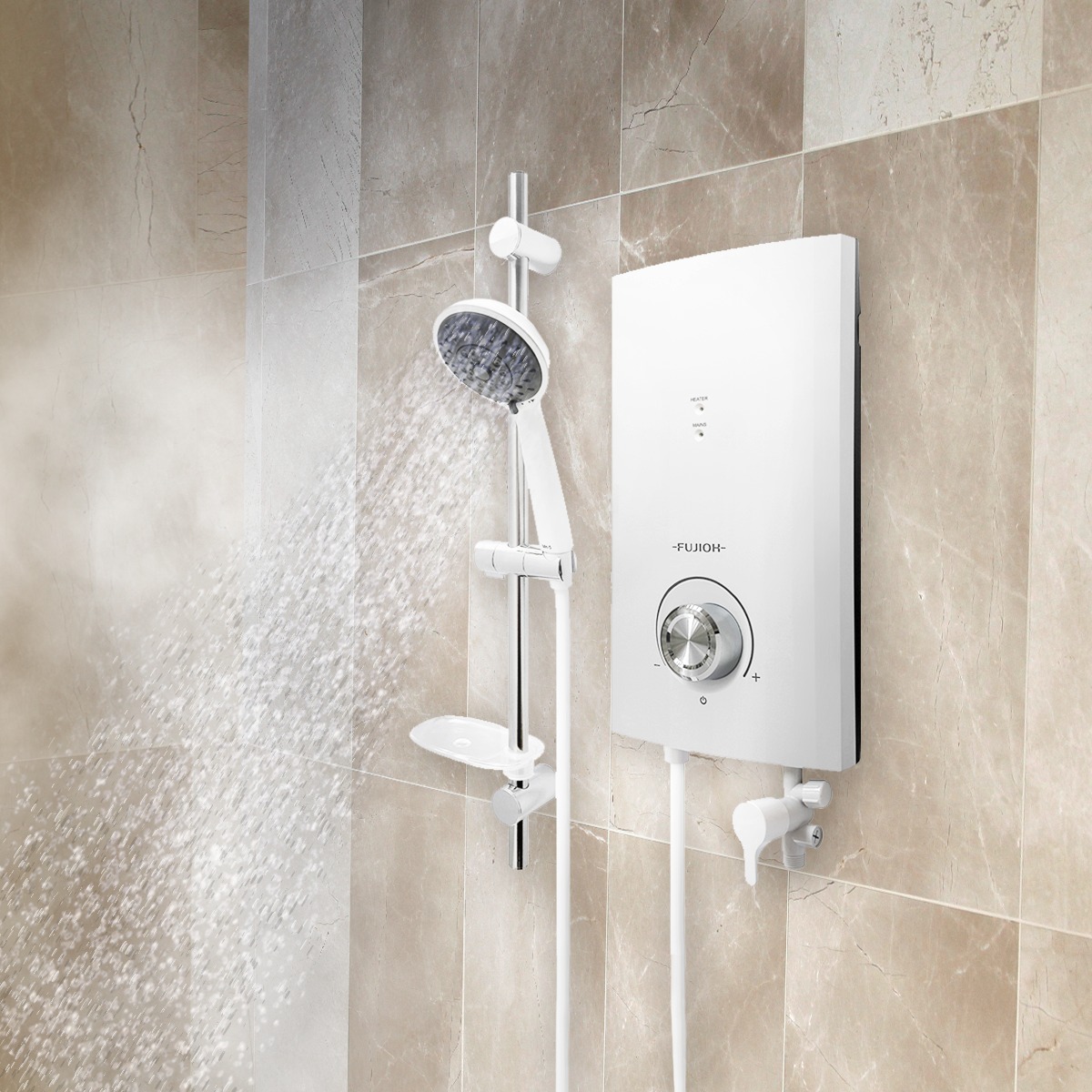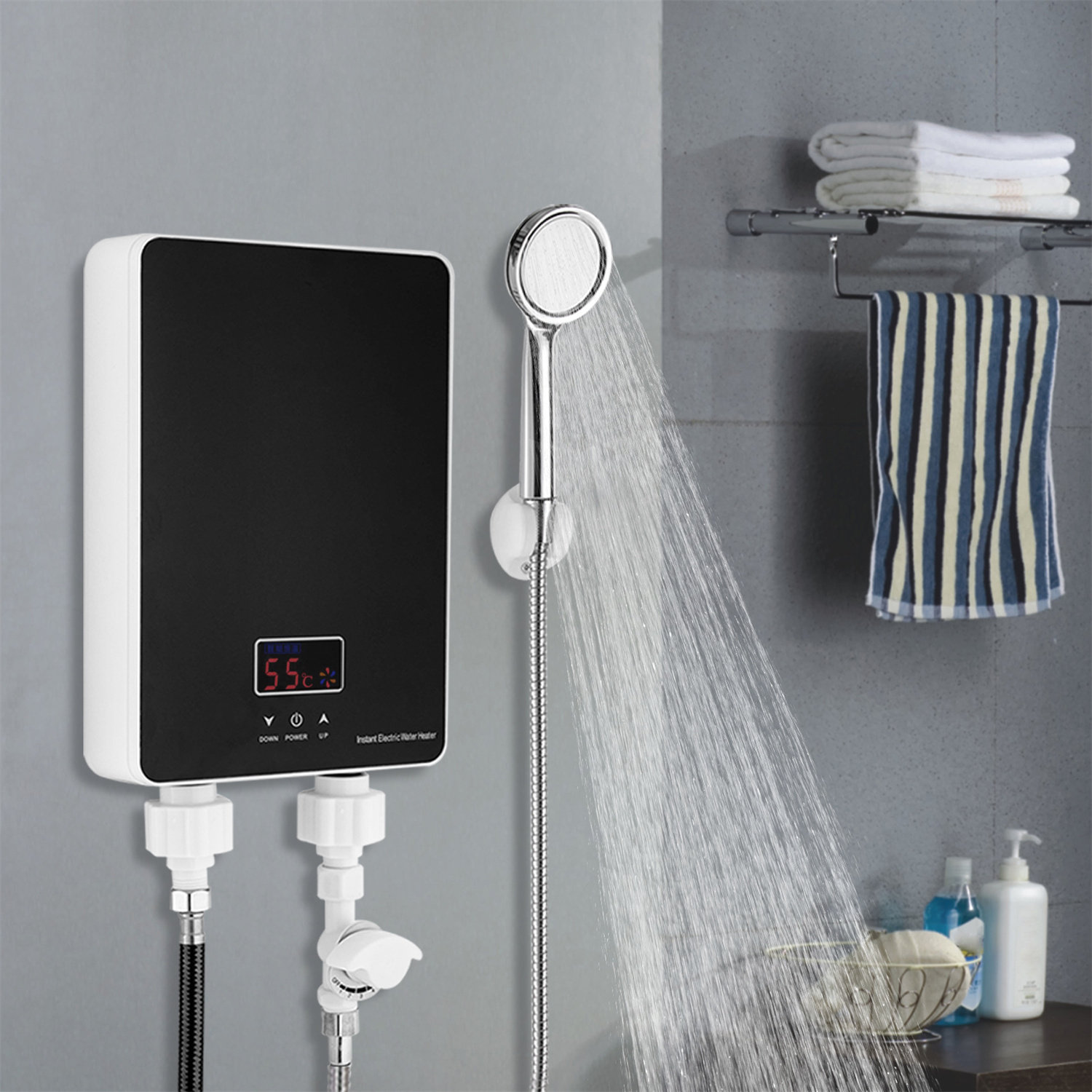Understanding The Gains Of Tankless Water Heaters
Understanding The Gains Of Tankless Water Heaters
Blog Article
The content down below in relation to Unveiling the Hot Trend: The Benefits of Tankless Water is truly enlightening. Give it a try and make your own findings.

In a world where comfort and effectiveness reign supreme, it's not a surprise that homeowners are frequently on the lookout for smarter methods to handle their home's energy usage and convenience. One development that has actually continuously gained appeal is the tankless hot water heater. But what exactly makes these systems stick out from the standard tank-based models most of us grew up with? Let's dive in and check out the advantages of tankless water heaters, helping you decide if it's time to make the button in your home.
Intro
Photo this: you step into the shower after a lengthy day, anticipating a soothing cascade of warm water, only to be welcomed by icy droplets because the last person used it all up. Sound acquainted? Typical hot water heater keep a fixed quantity of warm water, implying you go to the grace of that tank's supply. Tankless systems, on the other hand, warmth water as needed. No more going out mid-shower, no more wrestling with timetables just to ensure warm water is available.
Recognizing Tankless Water Heaters
What Are Tankless Water Heaters?
Tankless hot water heater, sometimes referred to as on-demand or instantaneous hot water heater, offer warm water only as it's needed. Rather than saving gallons of pre-heated water, these units kick into action the moment you switch on the faucet. Water travels through a warm exchanger, heating up in real-time, indicating you obtain a continuous flow of warm water without the demand for a large storage tank resting lazily by.
How Do They Differ from Conventional Equipments?
Traditional heaters hold a reservoir of hot water, making use of power to maintain that tank at a consistent temperature. Tankless devices remove the standing supply, lowering lost energy and the large footprint of a huge cyndrical tube. Essentially, you're updating from a "accumulation" frame of mind to a "made-to-order" approach.
Usual Kinds Of Tankless Devices
Tankless hot water heater generally can be found in two ranges: gas and electric. Gas designs tend to provide greater flow prices, ideal for larger houses, while electrical versions typically serve smaller sized homes and are usually easier to set up. Additionally, some systems are designed for point-of-use (offering one fixture) while others can deal with the whole home's hot water demands.
Key Advantages of Tankless Hot Water Heater
Energy Performance and Cost Cost Savings
Say goodbye to heating a titan container's well worth of water and maintaining it toasty all day. Tankless heaters decrease standby energy losses, which can lower utility expenses. While the initial cost might be greater, the lasting cost savings frequently justify the financial investment.
3. Space-Saving Layout
If your home is short on storage space, removing the bulky container maximizes important room. Tankless systems are small and can often be placed on walls, stashed in corners, or mounted in tight energy closets without having all to oneself the whole space.
4. Longer Life expectancy
A properly maintained tankless water heater can outlast its tank-based relative. Traditional containers may last 10-15 years, while tankless models can keep downing along for 20 years or more, making them a strong financial investment in time.
1. Endless Warm Water Supply
Ever needed to schedule showers so everybody obtains their fair share of hot water? With tankless, that comes to be a thing of the past. As long as the heating system's flow capability isn't surpassed, you can take back-to-back showers without becoming a popsicle.
5. Improved Water High Quality
Storing water in a tank can in some cases lead to debris buildup or a somewhat "off" preference. With tankless systems, fresh water is heated on the spot, minimizing the possibilities of sediment build-up and potentially offering cleaner-tasting water.
Considerations Prior To Changing
Though the benefits are engaging, it's a good idea to take into consideration a couple of factors prior to completely devoting.
Examining Your Home's Water Use Patterns
If your home concurrently utilizes numerous components with high hot water demand, see to it the system's flow price fulfills your requirements. Knowing your use patterns helps you select the best dimension and sort of tankless heating unit.
Upkeep and Care Tips
Tankless systems are fairly reduced maintenance, but they aren't set-it-and-forget-it home appliances.
Normal Cleaning and Descaling
Difficult water minerals can accumulate in the warmth exchanger, influencing efficiency. Routine descaling (usually recommended annually) keeps the system going for peak performance.
Annual Professional Inspections
A yearly checkup from a specialist guarantees small issues are caught early. They'll examine the device's performance, look for leakages, and help keep optimal effectiveness.
Preliminary Financial Investment Expenses
Tankless heating systems typically feature a greater in advance price tag. In between the unit itself and potential installment adjustments, the initial price may give you sticker shock. Yet remember to watch it as a long-lasting investment.
Setup Requirements
Depending on your home's facilities, you might require additional electric ability or gas line upgrades. Ensure you recognize the setup needs and speak with a specialist to stay clear of surprises.
Making Sure Correct Ventilation
For gas versions, correct ventilation is important to securely remove exhaust gases. Ensure airing vent systems are tidy and correctly installed to avoid any type of potential safety and security risks.
Contrasting Different Brands and Models
Not all tankless hot water heater are produced equivalent.
Researching Dependable Manufacturers
Seek credible brands with a history of creating quality devices. A reputable supplier commonly offers far better customer support and longer guarantees.
Installment: DIY or Expert?
While some home owners enjoy taking on tasks themselves, tankless installation may not be the very best time to burst out the tool kit.
Pros and Cons of DIY Setup
A do it yourself set up might conserve cash, but it features dangers. Incorrect installment can lead to ineffectiveness or safety problems. If you come in handy and have experience, it could be practical-- yet wage care.
Checking Out Evaluations and Individual Responses
User testimonials and feedback from next-door neighbors or buddies who have actually gone tankless can use beneficial understandings. Often, real-life experiences can be much more telling than advertising and marketing brochures.
When to Call a Specialist Plumber
For many, calling a professional makes sure whatever's done appropriately. An expert plumbing recognizes local codes, sizing needs, and airing vent specifications, reducing the danger of problems.
Making best use of Efficiency
You've invested in a tankless system-- currently optimize its efficiency.
Ideal Temperature Settings
Most people set their systems between 120-140 F. Changing the temperature can enhance comfort and cost savings. Experiment to discover a wonderful area that does not lose energy.
Pairing with Low-Flow Fixtures
Want to stretch your device's capabilities? Consider installing low-flow showerheads and faucets. They minimize water use, permitting your tankless system to supply a steady stream of hot water without stressing.
Environmental Influence
Tankless water heaters align with greener living goals.
Reduced Carbon Footprint
By using much less energy and only heating water as needed, tankless systems can lower your home's carbon impact, lowering your ecological influence.
Preserving Natural Resources
Much less energy consumption and much less thrown away warm water equate into less natural deposits being utilized, an environmental win-win.
That Profits Many from Tankless Heaters?
The elegance of tankless heating units is that they can suit a range of families.
Huge Households vs. Solitary Occupants
Large families may enjoy the countless hot water supply, while single occupants appreciate the power cost savings from not warming an entire tank for simply someone's early morning shower.
House Owners with Minimal Space
If your home is short on square footage, shedding the large container liberates space for various other basics-- or possibly simply a lot more breathing space.
Eco-Conscious Consumers
Going tankless aligns with environmentally friendly values, ensuring you're not wasting energy or resources.
Future Trends in Tankless Hot Water Heater
The globe of home devices is ever-evolving, and tankless water heaters are no exemption.
Innovations in Technology
R&D is continuously boosting warmth exchangers, making devices more efficient and resilient. Future versions might be even quieter, much more compact, and better matched for differing environments.
Smart Home Integration
Visualize changing your hot water heater's temperature using an app or getting maintenance informs on your phone. As clever home technology advances, we'll see even more connection and ease.
Verdict
Choosing a tankless water heater is greater than simply updating your home's hot water system; it's investing in lasting convenience, energy performance, and a greener way of living. By considering your family's water usage, being mindful of installation needs, and devoting to regular maintenance, you can appreciate a consistent stream of hot water without the baggage of a bulky tank. As technology advances, you can eagerly anticipate also smarter, much more efficient tankless services that not just make your life simpler but additionally benefit the planet.
Six Benefits of a Tankless Hot Water Heater
Continuous hot water. Large families know what a pain it is to hop into the shower and get blasted with cold water. With a tankless hot water heater, this doesn't happen as long as you install the right size tank. Even if you don t have a large family, a tankless hot water heater allows you to use multiple appliances at once without running out of hot water. Reduced energy bill. Because tankless heaters are essentially "off" when the water tap is not on, they use less energy overall. In fact, an ENERGY STAR-qualified tankless hot water heater can use 25-40% less energy than a conventional water heater, and save the average family $100 or more annually. Longer life. Get more bang for your buck with a greater lifespan. Specifically, conventional hot water heaters last about 10-13 years compared with up to 20 years for a tankless hot water heater. Less space. Did you know that tankless hot water heaters can be hung on a wall almost anywhere in your home? Plus, at 28" tall by 20" wide and 10" deep, a tankless hot water heater takes up a lot less space than a conventional hot water heater, which is 60" tall and 24" wide. Good for the environment. In addition to reducing the amount of energy used, most propane-fired tankless water heaters are made of recycled materials. Many conventional tanks, on the other hand, go directly to the dump once they've served their purpose. High safety ratings. Conventional water heaters are "always on" and thus pose safety risks more often than do tankless heaters, which only operate when warm water is needed. https://www.rotorooter.com/blog/water-heaters/six-benefits-of-a-tankless-hot-water-heater/

As a passionate reader on , I thought sharing that piece of content was a great idea. For those who enjoyed reading our blog post if you please make sure you remember to share it. Thanks so much for your time invested reading it.
Book An Appointment Report this page